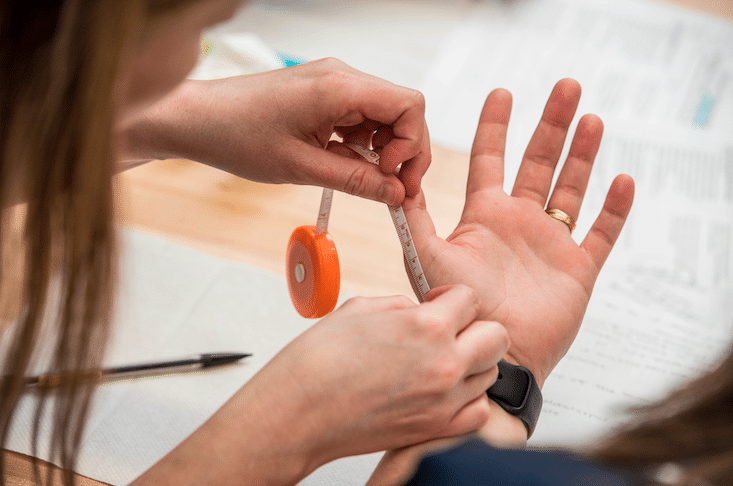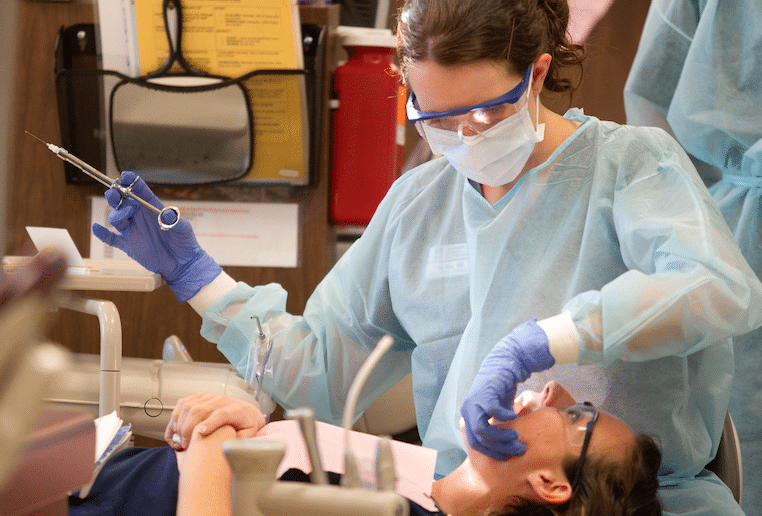Northern Arizona University’s dental hygiene program and occupational therapy doctoral program each received a $3.25 million grant under the Scholarships for Disadvantaged Students (SDS) program awarded by the Health Resources Services Administration (HRSA), a branch of the U.S. Department of Health. This is the first time the occupational therapy program has received this grant.
The purpose of the grants is to support and promote diversity in the health professions. Scholarships will be available to students from disadvantaged backgrounds who demonstrate a financial need and include those who are a part of racial and ethnic minority groups.
“Ninety percent of the NAU dental hygiene students who enrolled from 2015-2019 were from an educationally, environmentally and/or economically disadvantaged background, having difficult barriers to overcome to achieve their education,” said Denise Helm, a professor in the Department of Dental Hygiene and the principal investigator on the grant for dental hygiene. “These scholarships will help students focus on their academic endeavors.”
Helm worked alongside Eli Villareal, the co-principal investigator and department chair and director of physician assistant studies.
This year, the grants will cover at least half of tuition costs for about 40 students in the dental hygiene program and 33 in the occupational therapy doctoral program. Over the course of the next five years, Helm predicts about 200 students in dental hygiene will receive funding from this grant.
While dental hygiene, nursing, speech language pathology and physicians assistant studies programs have received this grant in the past, it is a first for the occupational therapy (OT) program. Oaklee Rogers, department chair, associate clinical professor and principal investigator for the OT grant, said she is looking forward to the recruitment opportunities the grant will provide.
“Diversity, equity and inclusion are critical elements for our program and this grant will support these efforts,” Rogers said. “This includes recruiting and admitting diverse students from all different backgrounds into our program. Our goal is to graduate students who will be representative of the communities and populations that occupational therapists work 
Widening recruitment opportunities does two things: It allows more diverse students into the program and provides the opportunity for those students to take the knowledge they gain back to their communities. Rogers said health care professionals from diverse backgrounds tend to select practice locations in areas where there is a health care and professional caregiver shortage.
“The HRSA grant is a very competitive grant application. The fact that NAU received two awards totaling $6.5 million that will go directly to the students is incredible,” Rogers said. “It shows the commitment that the faculty, staff, college and university have to support students from disadvantaged backgrounds.”
Helm shared a similar sentiment for the grant’s impact on the dental hygiene program.
“Tooth decay remains the No. 1 preventable childhood disease,” she said. “Health care professionals who are from a diverse background tend to select practice locations in health professional shortage areas, underserved areas and primary care. And, health professions students who participate in internships and clinical rotation in those areas are more inclined to return to that or a similar area to practice after graduation. NAU dental hygiene graduates serving in areas where there is a great need will help to address oral care disparities that are so prevalent in those communities.”
Both programs are excited and grateful for the opportunities these grants will provide students. “I am so proud of the ongoing commitment to recruit and support diverse students in our health professions programs,” said Roger Bounds, Interim Dean of the College of Health and Human Services. “This grant allows us to continue providing a pathway for student success and access, one of NAU’s strategic goals.”



